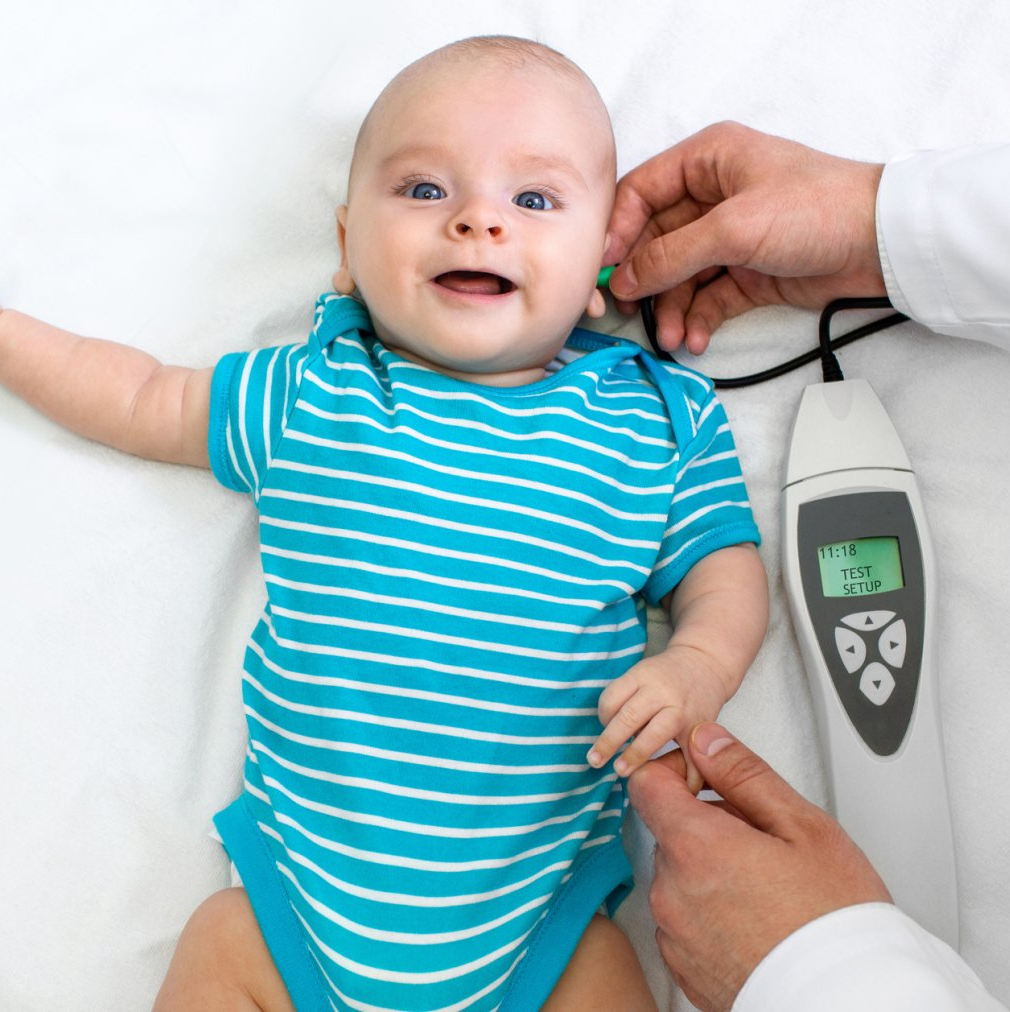Newborn Hearing Screening
& Follow-Up Care
NorthStar Audiology strives to be there for your family during all aspects of a hearing journey. We proudly offer mobile newborn hearing screening and follow-up diagnostic testing. Newborn screenings are common in most hospital settings before the baby is released from the hospital. If you have had a homebirth or your newborn missed their hospital hearing screening, NorthStar Audiology would be happy to arrange the screening in the comfort of your home. It is important to have your baby’s hearing screened prior to one month of age.

